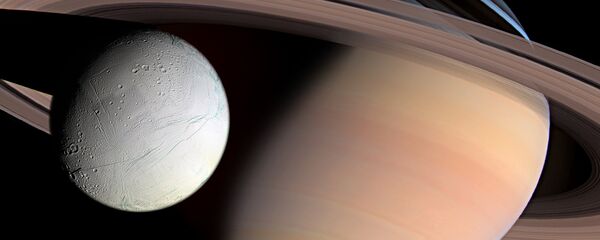NASA's Saturn probe Cassini observed a plume of water from a crack in Enceladus's ice. When Cassini sampled the plume, it found it to be 98 percent water, with the remaining 2 percent consisting of elements like liquid hydrogen, carbon dioxide and methane – and traces of organics. Those traces are all signs of the presence of life as we know it. Simple Earth organisms eat methane and excrete carbon dioxide.
Based on the data, NASA believes that it's possible for simple life such as bacteria (or perhaps something as complex as shrimp) to live on the seafloor of Enceladus. "We'd be excited with any discovery of life."


